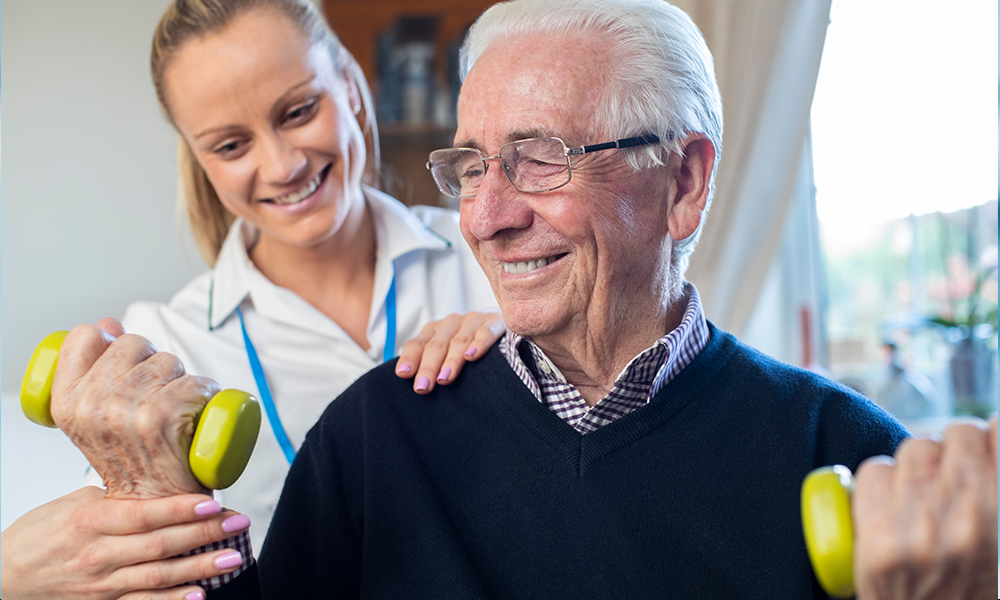Traumatic brain injuries may manifest in complex neurological conditions in various ways, making physiotherapy an invaluable therapy tool. While traditionally reserved for treating physical injuries, its application to treating brain injuries has expanded dramatically over time.
Understanding Brain Injuries
The Complex Brain
To fully grasp the effects of brain injuries and the role physiotherapy can play in their recovery, it is vitally important to gain an insight into the intricate complexity of the human brain. Housed within its skull, this vital organ serves as the nerve centre for many bodily processes – cognitive memory, attention and language functions, and physical ones such as movement coordination – so any disruption caused by injury to this vital organ could cause significant troubles in daily life.
Types and Causes of Brain Injuries
Traumatic brain injuries can generally be divided into two distinct categories: closed and penetrating. A closed brain injury occurs when the brain is damaged without skull penetration, typically caused by blunt force trauma like falling from a height or a car accident. Conversely, penetrating brain injuries occur when an object pierces the skull and enters brain tissue, such as through gunshot wounds or severe falls.
Non-traumatic brain injuries (NTBIs) can be caused by strokes, tumours, infections, lack of oxygen supply or exposure to toxic materials, which could result in long-term physical, cognitive and psychological consequences.
The Role of Physiotherapy in Brain Injury Rehabilitation
Physiotherapy, an area of healthcare specialising in movement science, employs physical methods such as exercise and manipulation to promote, maintain and restore physical, psychological and social well-being.
Initial Assessment and Evaluation
A physiotherapist is essential in assessing and treating patients who have suffered brain injuries. Their initial evaluation involves conducting a comprehensive assessment of physical abilities, movement patterns, muscle strength, flexibility, balance, and coordination endurance – helping identify areas of difficulty and creating a baseline against which progress can be measured.
Tailoring the Physiotherapy Program
As the impact of brain injuries varies significantly across individuals, rehabilitation requires a tailored approach tailored to each person’s specific circumstances. A personalised physiotherapy program may employ various strategies to restore function, increase fitness levels and decrease pain; for instance, muscle strengthening exercises and stretching sessions, gait training activities, balance coordination activities, and cognitive exercises designed to enhance focus and memory are just some possible treatments.
Essential Techniques Used in Physiotherapy for Brain Injuries
Neurological Physiotherapy
Neurological physiotherapy is a specialty branch dedicated to treating individuals who have suffered damage to their central nervous system. Techniques used include neurodevelopmental treatment (NDT), proprioceptive neuromuscular facilitation (PNF) and the Bobath concept, each used to enhance movement patterns, muscle control and functional independence.
Vestibular Rehabilitation
Brain injuries often lead to issues with balance and dizziness that need to be resolved through vestibular rehabilitation, an area of physiotherapy focused on exercises designed to strengthen balance, stability and spatial orientation for enhanced quality of life.
The Psychological Aspect of Physiotherapy
Physiotherapy addresses both the physical and psychological aspects of recovery from brain injuries. Rehabilitation can be an extended process, leading to changes in abilities and lifestyle that may cause frustration, anxiety or depression.
Building a Therapeutic Relationship
A physiotherapist typically forms an intimate therapeutic relationship with their patient, offering physical and emotional support. They can assist the individual in managing emotions and developing strategies to alleviate stress and anxiety.
Promoting Self-Efficacy
Physiotherapy’s purpose isn’t simply rehabilitation; it aims to empower. By actively engaging with their patient during their healing journey, physiotherapists cultivate self-efficacy, enabling patients to manage symptoms more effectively and take control over the rehabilitation process.
The Importance of Family and Caregiver Involvement
Rehabilitating from a brain injury is often an experience shared between patient and their loved ones, with family support and involvement being invaluable in its success. Physiotherapy management of traumatic brain injury success may even depend on them!
Supporting the Rehabilitation Journey
Family and caregivers motivate and support patients on their rehabilitation journey. They can assist with exercises at home, help foster an optimistic environment and provide vital emotional support.
Education and Training
Physiotherapists frequently offer education and training for family members and caregivers of their patients to aid them in the patient’s recovery process. This may involve teaching specific exercises, providing advice for adapting to home environments or offering strategies to manage behavioural or emotional changes. Sometimes you might need to hire a caregiver instead, and that would be okay too. Caregiver salaries vary depending on what they are required to do and the location, so make sure to research different prices before deciding.
Future Perspectives: Physiotherapy and Brain Plasticity
Recent advances in neuroscience have demonstrated that the brain is not a static organ but can adapt and change throughout an individual’s lifetime, giving rise to innovative approaches for treating brain injuries through physiotherapy. This concept, known as neuroplasticity, provides opportunities for new strategies in treating them.
The Power of Neuroplasticity
Neuroplasticity refers to the brain’s capacity for adaptability by creating new neural connections, even following injury. This means that even after an injury, neuroplasticity could allow its victims to rewire themselves and restore some lost functions.
Harnessing Neuroplasticity in Physiotherapy
Physiotherapists are harnessing this groundbreaking idea by designing exercises to stimulate damaged brain areas, encourage new connections to form and improve function. The implications are immense, providing new hope to those suffering from brain injuries.
Conclusion: The Pivotal Role of Physiotherapy in Healing After Trauma
Recovering from a brain injury is often an uphill struggle, yet physiotherapy can provide invaluable assistance on this path to healing. By employing tailored physical techniques with an awareness of their psychological and emotional needs, physiotherapists play a significant role in aiding trauma victims’ healing processes. As neuroplasticity unveils exciting new insights, physiotherapy-aided rehabilitation offers incredible potential in brain injury rehabilitation.


 Home
Home










